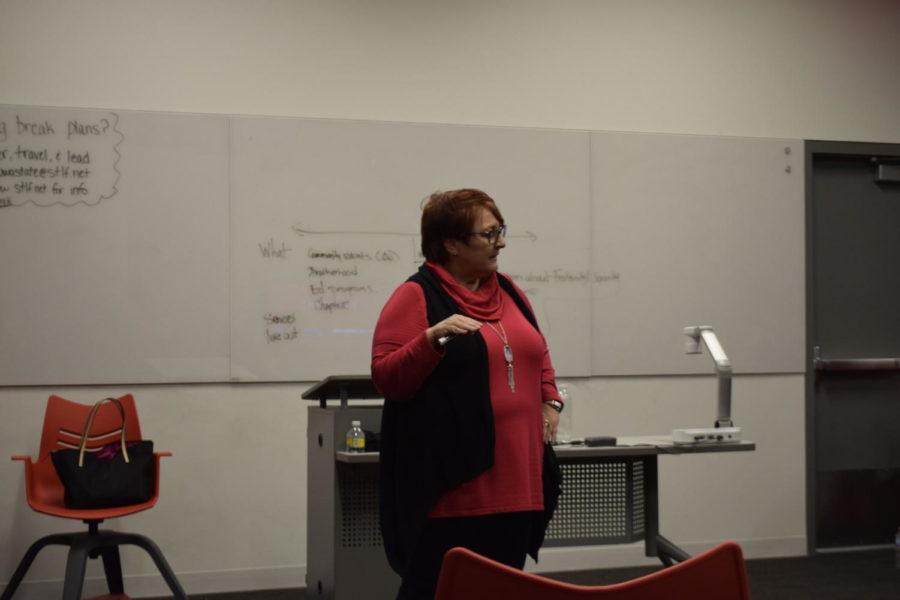Chapter presidents focus on solving problems
Kim Novak speaks to fraternity and sorority presidents about her linear approach to problem solving.
February 22, 2017
The collegiate greek community is largely stereotyped for its bad habits, but that doesn’t mean Iowa State’s chapters aren’t doing everything they can to prove that wrong.
Over three days, Kim Novak led sessions at various Iowa State locations for the greek community on how to change the stigma it is currently facing. Novak is an industry leader in risk prevention as well as alcohol and hazing education.
Novak founded NovakTalks, a company dedicated to consulting on-campus safety in 2009, but worked in risk prevention on the collegiate level for many years prior.
Her background in risk management, anti-hazing efforts and campus safety have made her a successful expert across the nation.
Her presentation to Iowa State’s greek chapter presidents on Wednesday night focused largely on solving issues in greek chapters and her linear concept of problem solving.
Throughout her lecture, Novak called on various chapter presidents to discuss their challenges as a chapter and as a leader in the chapter.
Two fraternity presidents agreed that social media can make leading their chapters difficult, which Novak chimed in on.
“Social media has made it more complex,” she said. “How do we access social media and use it in a positive way?”
Novak also pointed out that as financial management changed and became more complex, as university students used to “come from a place of wealth” and didn’t have to worry about fraternity or sorority dues.
“A lot of men and women aren’t just rolling up with mom and dad paying their college expenses,” Novak said.
She went on to analyze a specific problem common through the greek community, which is members coming to events.
In the first step of her linear concept, she helped the presidents determine which events it can be difficult to get members to attend and which members perpetuate the problem.
Novak emphasized that chapter presidents can’t “graduate” the problem because younger members see habits of upperclassmen and follow them when they get to that age.
The next step of her process helped presidents brainstorm why members don’t show up to events, but she told them not to ask “what are we going to do?”
Instead, Novak said presidents need to ask “what are we going to change?”
She then offered that question to the presidents on how to raise member attendance at events, rather than writing another bylaw.
One president suggested that chapters host fewer events but make them more significant to encourage higher attendance.
Novak explained that most of the time, members don’t come to events because they are “over programmed,” and adding another program to help engagement will only overwhelm members.
She concluded her explanation of her linear approach to problem solving by offering final, reiterated advice to the chapter presidents.
“A good leader isn’t going to say, ‘What are we going to do?’” Novak said. “They’re going to say, “What are we going to change?’”
















